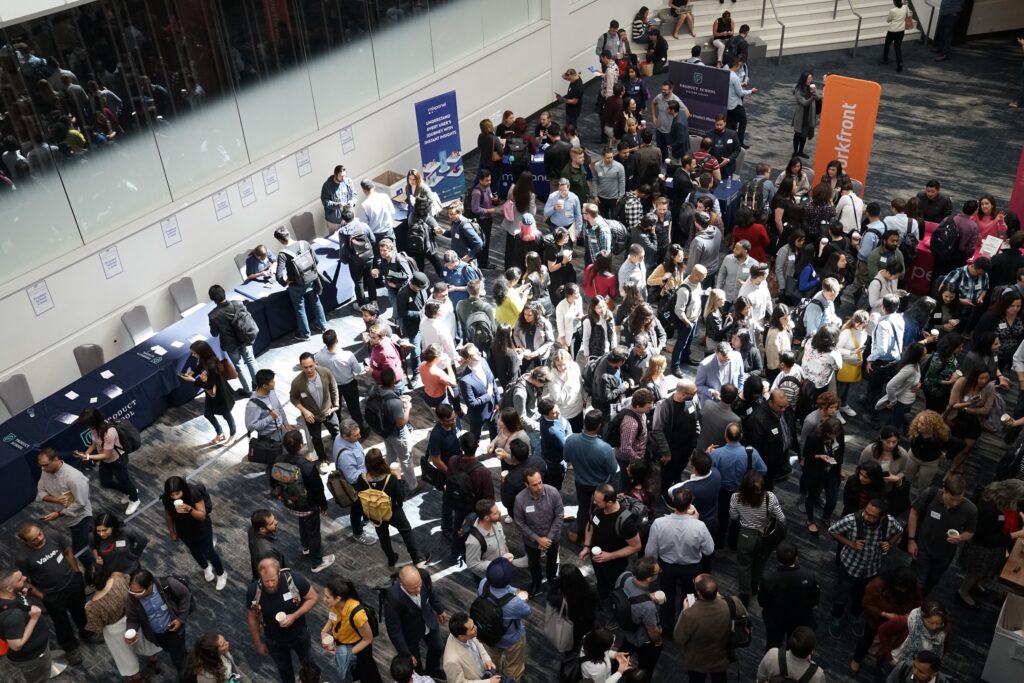Photo by Product School on Unsplash
This summer I got the opportunity to go to my first academic conference. The conditions for participating, first a short paper, later a full paper, were rather challenging for me. Getting “the go” for participating therefore left me with both, a feeling of being proud for having been accepted, and curious for what actually happens at a conference. Until then, I knew that conferences are places where people within the same field meet to present academic papers and exchange about their research. Once I received the program, I realized that there were quite some parties organized within that week of the conference, which was commented on by my colleagues with “better pack your dancing shoes”. They explained that the main goal of a conference is to interact and network with other researchers after or in between the sessions, and yes that also happens during (often badly and overpriced) organized dinners and parties.
Networking as the main goal of any conference
This was very suitable considering that my whole PhD project is dedicated to the topic of networking: the importance of networking as access to resources, zooming into the actual sayings of doings of how people get to the core of networking as well as questioning why and with whom certain people network with. Since not everyone is able to network in the same way, much of my research seeks to analyze the nuances in the relationship between networking equality and inequality. What are barriers to access networks and how are they related to the domain in which networking occurs?
Breaking the ice and hidden barriers at the conference
As I attended the conference by myself, and since it was my very first one, I desperately searched for familiar faces in the huge crowd of unknown people, someone I could tag along with and ask all the “stupid” questions about the context of the conference. Starting with “What do we actually do here?” After spending the first introduction meetings of the conference by myself, I happened to meet again some fellow PhDs I crossed paths with together with my colleague Rasika at a feminist workshop in Helsinki (link here) to team up with for the rest of the conference, especially for the social events. Now we could share our insecurities about the current situation: the conference was big, there were huge groups of people who seemingly already knew each other and did not really show signs of being open for conversations with the PhD students. There was a sense of “hierarchy” in the air. “Big names” you would have liked to get to know in connection with your research but you were too afraid /hesitant to approach them. You overheard interesting conversations but did not feel comfortable to join in, since you did not yet know the proper etiquette at conferences like this. The program and logistics were quite confusing and you felt kind of overwhelmed and isolated.
Introducing oneself to others was hard
The conference was organized in such a way that there was no official opportunity to introduce oneself to the group or to get in touch with unknown people. Spaces for informal conversation were available in the form of coffee or lunch breaks, but the barriers for participation in actual networking were difficult to overcome without some sort of “gatekeeper”. Since most of the doctoral students I spoke to attended alone, it was this very “gatekeeping” that determined the extent to which other people within the event could have been approached. In my case, I decided in a particularly overwhelming moment to proactively ask a “better-connected” PhD student if it would be okay for me to “hang on to her” to get a better hold of what was actually happening, introduce myself to her contacts and to gain some feeling of security.
The best way to “introduce” yourself to the field is probably to present your research. This way you get noticed within the field, get much needed feedback, and also get a reference point for later networking attempts. In an effort to be more inclusive and appreciative of the graduate students, the organizers decided to move the doctoral students’ contributions to “round tables” that were separate from the regular presentations. This allowed the PhDs to network in their respective rounds. At the same time, however, this led to an exclusion of the PhDs from the “public”, which resulted in invisibility, lack of feedback as well as more difficult conditions to gain access to networking opportunities within the field.
Even though this first conference experience was difficult, it helped me to get a first glimpse into the “community” and get in touch with other PhDs and to start forming an individual network that will also help with the next conferences to come.

Networking for gender equality and diversity (The Netherlands)
